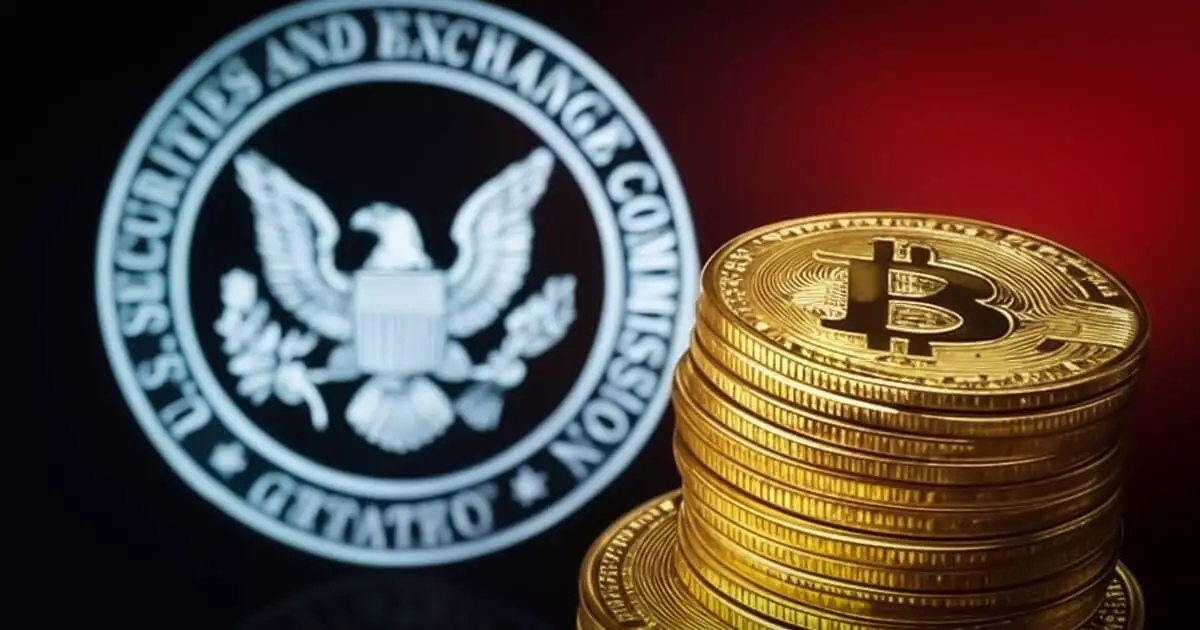With the impending transition of power in the United States, significant shifts in regulatory frameworks appear to be on the horizon, particularly in the realm of cryptocurrencies. As President-elect Donald Trump prepares for his inauguration, the U.S. Securities and Exchange Commission (SEC) is reportedly gearing up to overhaul its approach to cryptocurrency enforcement. This expected pivot could herald a new era for digital assets, shaped by the perspectives of key SEC commissioners known for their pro-crypto orientations.
According to sources familiar with the matter, SEC commissioners Hester Peirce and Mark Uyeda are contemplating modifications to the agency’s regulatory stance. Both individuals have garnered reputations as advocates for the cryptocurrency sphere, and their potential influence could mark a significant departure from the SEC’s current enforcement-heavy policies. As the regulatory landscape evolves, significant attention is being paid to how the SEC defines cryptocurrency, particularly in distinguishing which digital assets should be classified as securities.
The conversation around crypto classification has become increasingly critical in recent years, as the booming digital currency market has led to numerous enforcement actions targeting various firms. High-profile cases involving companies like Coinbase and Kraken serve as prime examples; how these cases are handled going forward is poised to shape the industry’s future. Legal experts predict that any changes made by Peirce and Uyeda will provide clarity on these matters, especially concerning the classification of specific cryptocurrencies as securities.
Political Dynamics and Regulatory Implications
The political context surrounding this anticipated regulatory overhaul cannot be overstated. Bill Hughes, a lawyer at ConsenSys, suggested that the whispers about changes in the SEC may stem from internal sources aware of Trump’s more lenient approach to crypto. The notion that these insights were strategically leaked to Reuters also raises questions about the tactics employed by stakeholders seeking favorable regulatory outcomes.
Another crucial factor in this unfolding saga is the imminent appointment of Paul Atkins as SEC chair. A former commissioner himself, Atkins is seen as a proponent of deregulated crypto policies, having played a significant role in the Digital Chamber’s Token Alliance. His leadership may facilitate a further easing of the regulatory environment, addressing the concerns of companies deterred by high compliance costs thus far.
The incoming administration’s approach could lead to a decrease in the bureaucratic barriers currently faced by crypto firms attempting to operate transparently. Critics of existing regulations argue that these barriers stifle innovation and market growth, making a case for the need for comprehensive reform.
While the potential rollback of enforcement actions may be welcomed by many in the crypto industry, it raises alarm bells regarding the possible politicization of regulatory processes. Observers highlight that any attempt to prioritize political agendas over rigorous legal standards could set a troubling precedent. Critics warn that the already complex legal battles surrounding cryptocurrency regulations could be further muddied, potentially resulting in inconsistent rulings that challenge the SEC’s credibility.
This concern is echoed by legal experts like Philip Moustakis, who caution that blanket halts on enforcement actions, without rigorous legal justification, could significantly undermine the SEC’s authority—an outcome that could have lasting ramifications for investor trust and market stability.
Additionally, Robert Cohen, formerly of the SEC’s enforcement division, notes the possibility of reopening settlement negotiations in ongoing cases. Such a move would signal a willingness to reassess previous stances, potentially providing resolution to firms currently embroiled in legal disputes.
The anticipated changes in the SEC’s regulatory approach herald both opportunities and challenges for the cryptocurrency landscape. As transformations take shape, stakeholders must remain vigilant. The complex interplay between regulatory clarity and the need for accountability will undoubtedly dominate discussions about the future of cryptocurrency within the United States.
Thus, as the Trump administration embarks on reforming the SEC’s stance on cryptocurrency, all eyes will be on the commission’s decisions in the coming weeks and months. Should these shifts result in a favorable environment for crypto innovation, the ramifications could be profound, redefining how digital assets intertwine with the broader financial landscape. The urgency for clear definitions and coherent policies cannot be overstated, as the market continues to evolve in tandem with these bureaucratic changes.

